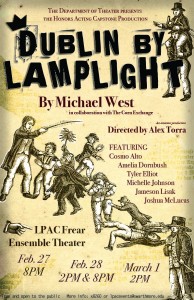The Peace and Conflict Studies program is thrilled to join the Lang Center for Civic and Social Responsibility in welcoming a new colleague in Peace and Conflict Studies for the 2015-2016 academic year!
Dr. Denise Crossan
Lang Visiting Professor for Issues of Social Change
2015-2016
As the Lang Professor, Dr. Denise Crossan will engage with alumni, community members, faculty, staff, and students through instruction, research, and engagement activities surrounding the topics of social innovation and social entrepreneurship.
Dr. Crossan will offer two courses on social entrepreneurship in 2015-2016:
- PEAC 039 Social Entrepreneurship for Social Change (Fall 2015)
- PEAC 049 Be the Change: Social Entrepreneurship in Principle and Practice (Spring 2016)
Dr. Crossan joined the School of Business at Trinity College, Dublin (TCD) in January 2009 as Ireland’s first Lecturer in Social Entrepreneurship, and is the founding director of TCD’s new center, Initiative on Social Entrepreneurship. There she has taught courses such as “Social Entrepreneurship and Social Innovation: Organisation and Management,” and has consulted with many groups as they develop earned income strategies to sustain their work for the common good.
All members of the College community are encouraged to connect with Dr. Crossan during her time at Swarthmore as she is an incredible colleague with expertise in the areas of innovation, leadership, NGOs, social entrepreneurship, as well as strategic management and marketing.
Endowed by Eugene M. Lang ’38, the Lang Visiting Professorship brings to Swarthmore outstanding social scientists, political leaders, and social activists whose careers demonstrate sustained engagement with major issues of social justice, civil liberties, human rights, and democracy.
Along with the sponsoring academic program, Peace and Conflict Studies, this Lang Visiting Professorship is co-hosted by the Lang Center.








